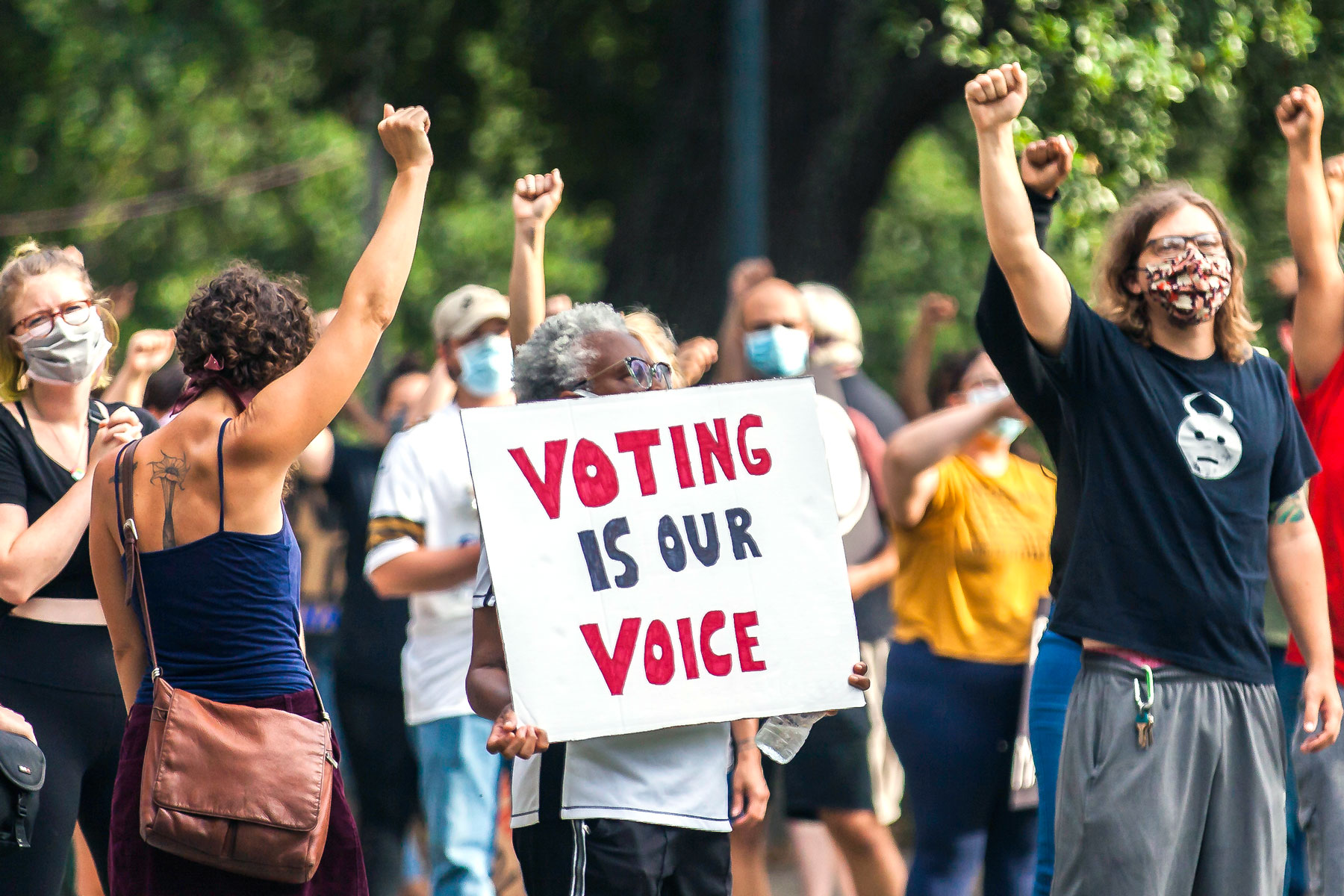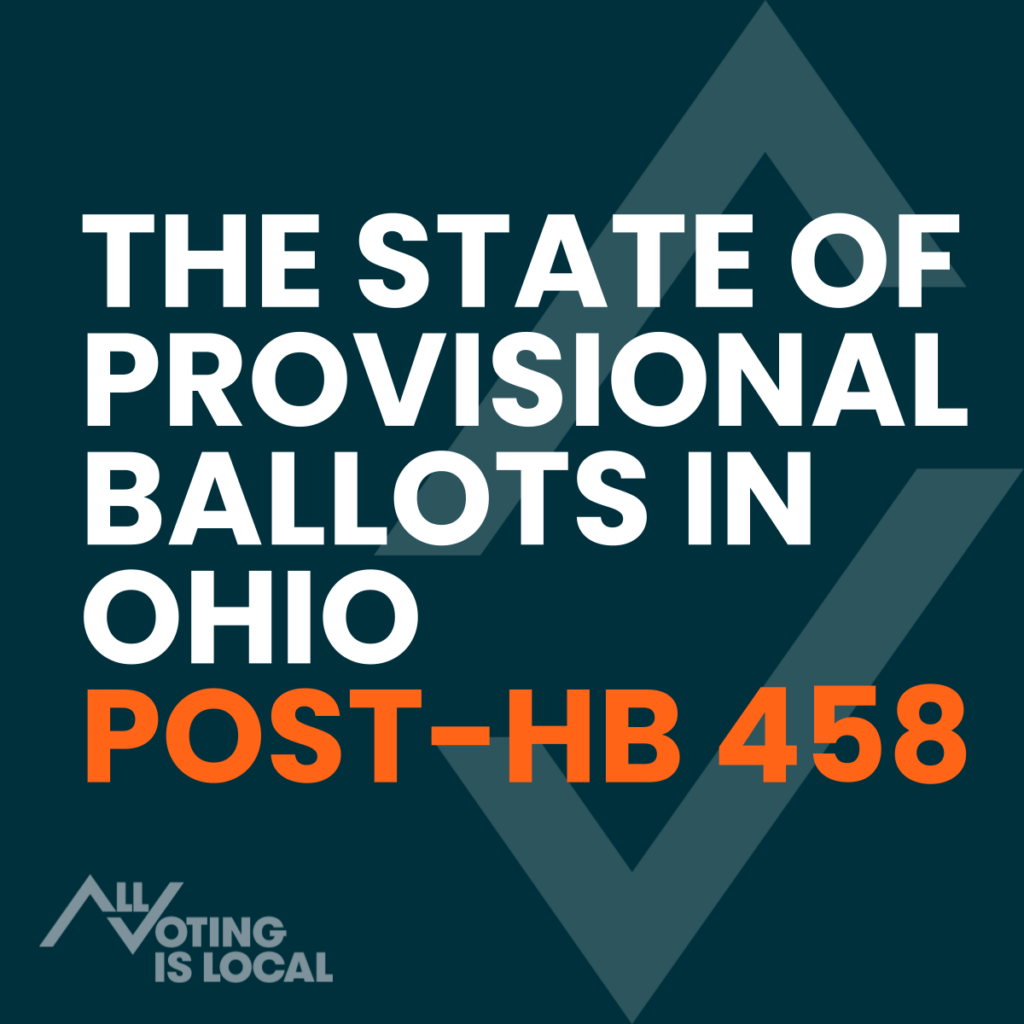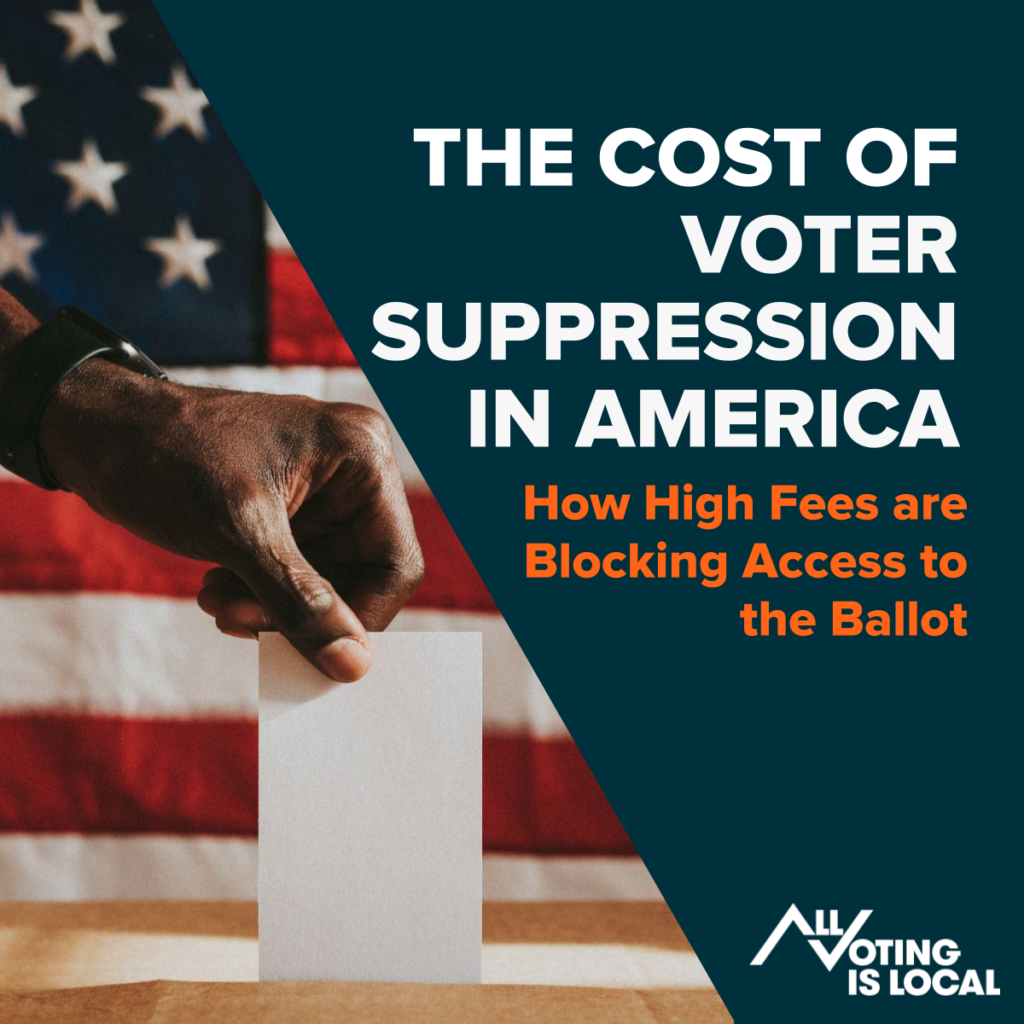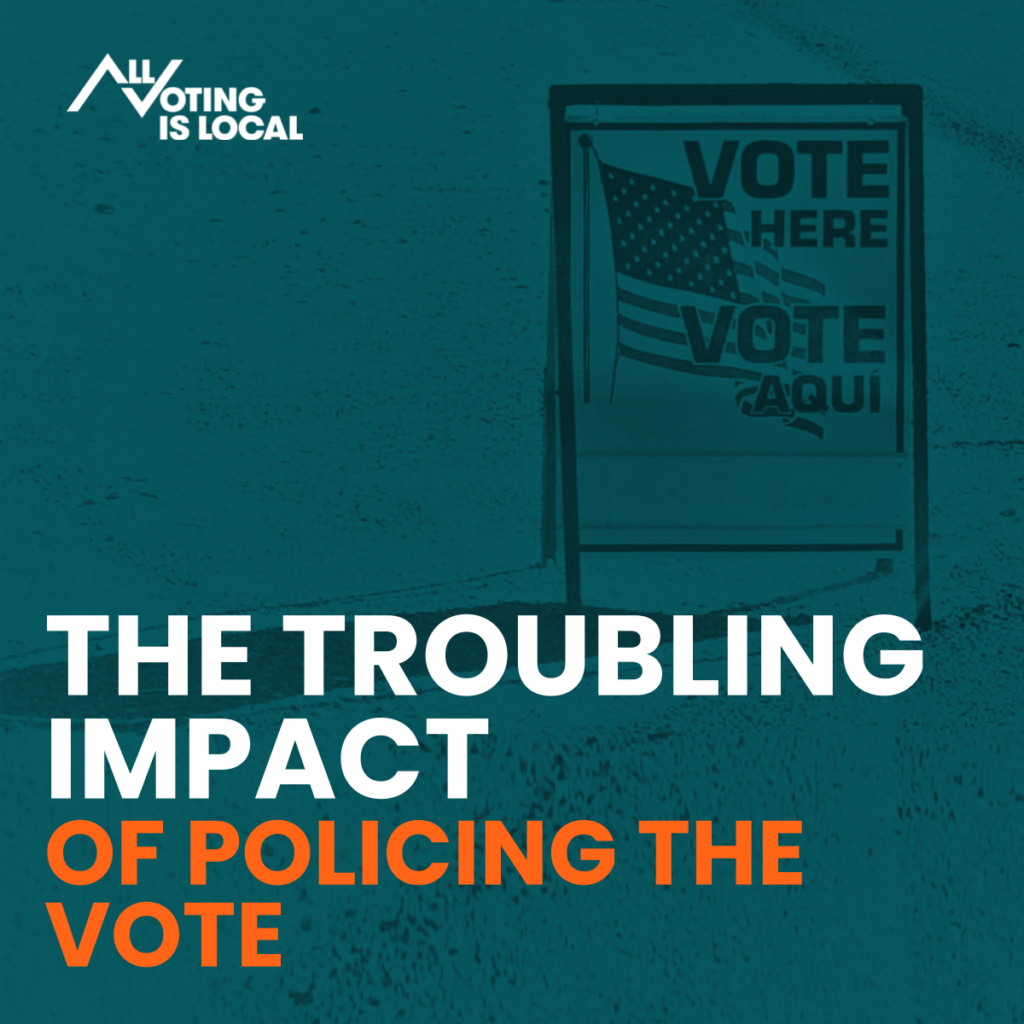
Data and Research
Our data and research team focuses on leveraging data to advance pro-democracy efforts, interpret and share stories, understand emerging threats, and support advocacy dedicated to expanding voting access. We proactively monitor voting issues, provide statistical analysis of policy impacts, and use our research to gain deeper insights into the complexities of the voting rights landscape.

Understanding the Flawed Data Methodologies Underlying Mass Voter Challenges
In recent months, there has been a growing effort driven by activists—many continuing to espouse debunked voter fraud theories—to challenge the eligibility of thousands of registered voters.
Emerging information about the data programs that mass challengers are using has prompted concern that the challenges rely on faulty data methodologies that put voters who lack traditional or long-term housing—such as nursing home residents, students who live in dormitories, unhoused people, and renters—at particular risk of having their voter registrations questioned and potentially canceled.
The state of provisional ballots in Ohio post-HB 458
Since the signing of House Bill 458 (HB 458) into law in January of 2023, All Voting is Local has closely followed and analyzed the bill’s impact on provisional ballot rejection rates. The bill was noted as implementing one of the strictest voter ID laws in the nation due in part to the limitation of the number of acceptable IDs usable on election day it imposed. Our research examines an increase in provisional ballot usage in Ohio, where the numbers point to the increase in voters who attempted to cast their ballots – and may very well have met all eligibility requirements – but simply lacked one of the ID forms required under Ohio’s new law.


The cost of voter suppression in america: how high fees are blocking access to the ballot
Our research found that a first-time voter will spend upwards of $105 to register and cast their ballot successfully. All Voting surveyed eligible voters across the U.S. to better understand how present-day election laws and voting policies affect their ability to participate in our democracy. In this report, we estimate the real out-of-pocket costs voters face when attempting to cast their ballots and make their voices heard, and make recommendations for election officials that aim to expand access to the ballot, not make it harder for people to vote.
Policing the Vote: Election Integrity Units in Florida and Ohio
Released in collaboration with Florida International University’s Amanda D. Clark and Engage Miami’s Monica A. Bustinza, the groundbreaking report examines the evolution of Election Integrity Units in these Florida and Ohio. We expose their origins, funding sources, and operational strategies. The report also highlights how these units, purportedly created to safeguard election integrity, have instead become instruments for voter suppression, disproportionately targeting communities of color and echoing historical patterns of discrimination.

report archive
- Election Budgeting: A Deeper Dive into the Cost of State Elections
- Poll Worker Rules and Guidelines for Seven States
- Ballots for All: Improving Language Access for Nevada Voters
- Voter Policies are Nonexistent in Ohio Jails
- Ensuring the Eligible Voters in Florida Jails Have Access to the Ballot
- Ballots for All: Holding Pennsylvania County Jails Accountable for Providing Ballot Access
- Getting There is Half the Battle: Wisconsin’s Photo ID Law, Access to DMV Services, and the Fight for Our Freedom to Vote
- Too Many Ballots of Last Resort – Disparities in Provisional Ballot Use in Ohio’s 2020 Election
- Casting, Rejecting, and Curing Vote-by-Mail Ballots in Florida’s 2020 General Election
- Ballots for All: Ensuring Eligible Wisconsin Voters in Jail Have Equal Access to the Ballot
- COVID-19 Silenced Voters in Wisconsin
- Vote Centers: Potential Benefits for Voters, but Standards and Protections Must Be in Place
- Needs Improvement: Barriers to the Ballot at Ohio’s Historically Black Colleges and Universities
- Rejected: How The Provisional Ballot System in Franklin County, Ohio Fails Voters